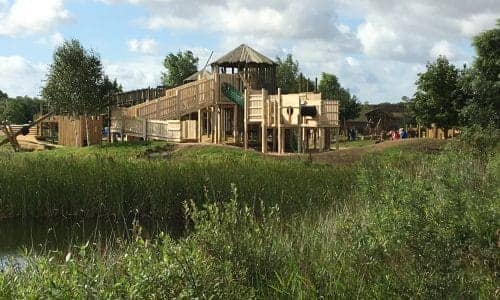Why Outdoor Learning Is Important for Children
Outdoor learning, also known as outdoor education or learning in nature, is crucial for children’s development and overall well-being. Here are some key reasons why outdoor learning is important:
- Holistic Development: Outdoor learning engages children’s physical, cognitive, emotional, and social aspects, fostering holistic development. Being outdoors provides a rich sensory experience, stimulating their senses and enhancing sensory integration skills. It encourages exploration, problem-solving, critical thinking, creativity, and imaginative play, promoting cognitive development.
- Health and Well-being: Spending time outdoors exposes children to natural sunlight, which is a vital source of vitamin D. It supports bone health, boosts the immune system, and positively impacts mood and mental health. Outdoor activities also promote physical fitness, reduce sedentary behavior, and contribute to overall health and well-being.
- Connection with Nature: Outdoor learning allows children to develop a deep connection with the natural world. It cultivates a sense of wonder, curiosity, and respect for the environment. Through direct experiences in nature, children learn about plants, animals, ecosystems, and develop environmental awareness and conservation values.
- Physical Activity and Motor Skills: Outdoor learning provides ample opportunities for physical activity, encouraging children to engage in active play, running, jumping, climbing, and other movements. These activities promote gross and fine motor skill development, coordination, balance, and spatial awareness.
- Emotional and Social Development: Outdoor environments offer open spaces and freedom for children to express themselves, take risks, and engage in unstructured play. They learn to navigate challenges, manage risks, and develop resilience. Outdoor group activities promote teamwork, cooperation, communication, and conflict-resolution skills, fostering social development and positive relationships with peers.
- Hands-on Learning: Being in nature provides a hands-on and experiential learning environment. Children can directly observe and interact with natural phenomena, conduct experiments, and explore scientific concepts. This kinesthetic and sensory learning approach enhances understanding, retention, and curiosity.
- Reduced Stress and Improved Concentration: Outdoor environments have a calming effect and can help reduce stress levels in children. Spending time in natural settings has been linked to improved attention spans, concentration, and cognitive functioning. It can also alleviate symptoms of attention deficit hyperactivity disorder (ADHD).
- Environmental Stewardship: Exposing children to nature at an early age nurtures a sense of responsibility and care for the environment. By experiencing firsthand the beauty and fragility of nature, children are more likely to develop a sense of environmental stewardship and become future advocates for sustainable practices.
In summary, outdoor learning provides a wide range of benefits, including holistic development, physical health, environmental connection, emotional well-being, and enhanced learning experiences. It allows children to explore, discover, and learn in a natural and dynamic environment, fostering their overall growth and nurturing a lifelong appreciation for nature.
Timotay Playscapes can support outdoor learning needs, and you can book a free consultation with our award-winning team to discover more. Click here to contact us

















